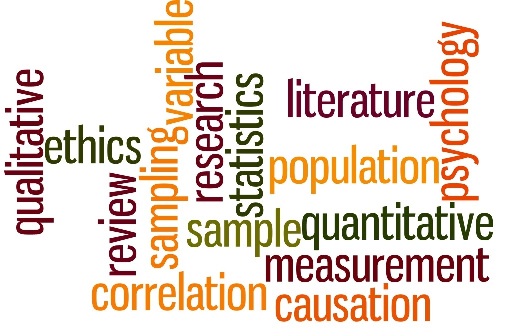In this article, I will discuss what is qualitative research or what qualitative research or what qualitative research methods in detail.
The material, information, and facts gathered in qualitative research are not numerical. It contains mostly natural or natural information. For example, words like too much, too little, or average
are used.
Qualitative Research Definition
Qualitative Research seeks to delve deeper into the material. That is, the
results from the content are good or bad, something is high or low.
It adopts assumptions about social life objectives for research. Qualitative reports often contain such description, colorful, detail, and unusual characters instead of formal neural tone with statistics.
Qualitative Research gives the reader a feel for particular people and events in a concrete social setting.
Qualitative Research Types or Techniques
Qualitative Research contains several techniques as Grounded Theory, Ethnography, Life history, and Conversational analysis.
Qualitative Research often begins with formal theory. Female Researchers are more likely than male researchers to use qualitative research.
Characteristics of Qualitative Research
There are six major characteristics of qualitative research.
1. Importance of the Context
Qualitative Researchers emphasize the importance of social context for understanding the social world. They hold that the meaning of social action or statement depends in an important way, on the context in which it appears.
When a researcher removes an event, social action, answer to a question or conversation from the social context in which it appears or ignores the context, social meaning and significance are distorted.
Attention to social context means that a qualitative researcher notes what came before or what surrounds the focus of study.
It also implies that the same events or behaviors can have different meanings in different cultures or historical eras.
For example, instead of ignoring the context and counting votes across time or cultures, a qualitative researcher asks; what does voting mean in the context?
In qualitative research, researchers place parts of social life into a larger whole. Otherwise, the meaning of the part may be lost.
For example, it is hard to understand what a baseball glove is without knowing something about the game of baseball.
The whole of the game innings bats, curveballs, hits gives meaning to each part, and each part without the whole has little meaning.
2. The Case Study Method
Qualitative Researchers may use a case study approach. A researcher might gather a large amount of information on one or a few cases.
They go into depth and get more detail on the cases being examining. The case study researchers also go about data analysis differently whereas a quantitative researcher looks for variables.
A case study researcher faces the amount of data but has been immersed in it. Immersed gives the researcher an intimate familiarity with people's lives, and culture.
In qualitative research, a researcher looks for the patron in the lives, actions, and words of the people in the contact of the complete case as a whole.
3. The Researcher Integrity
A question of trust, readers of qualitative research usually place more trust in the researcher's integrity and interpretation.
A quantitative researcher substitutes explicit descriptions and standard techniques and statistics for trust. But the qualitative researcher does not adopt such measures.
4. Grounded Theory
In qualitative research, the theory that emerges from natural observation is called a grounded theory.
A theory which built up from naturalistic observation of phenomena, generally reflecting the participant's own interpretations rather than being introduced or imposed by investigators.
5. Process
The passage of time is an integral part of qualitative research. Qualitative Researchers look at the sequence of events and pay attention to what happens first, second, third, and so on.
6. Interpretation
In qualitative research, the word interpretation means the assignment of significant meaning. This is an assignment in which the highlight of any event's major cause or basic thing.
Reports of qualitative research usually include pictures, charts, diagrams, and visual presentations. Qualitative research rarely uses tables or numbers.








0 Comments